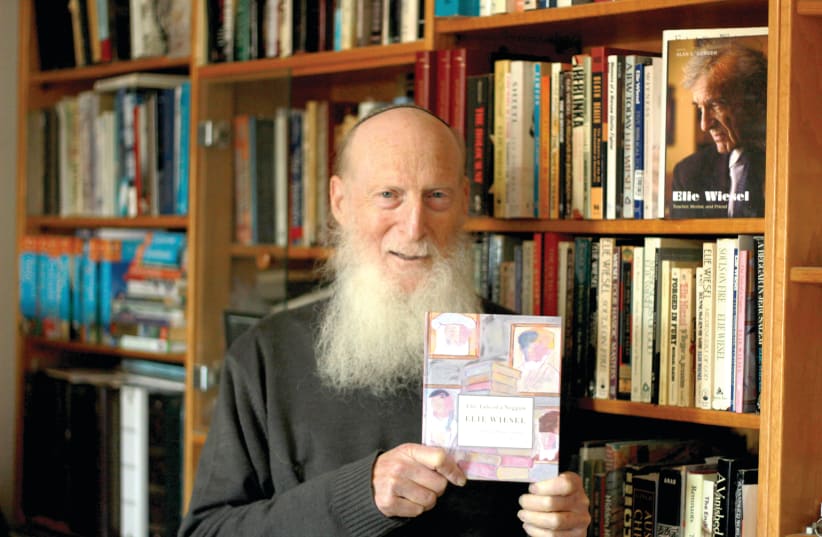Set during WWII, the poem revolves around tension created by a repugnant Nazi demand to the leaders of an unnamed ghetto community. Just before Purim one year, the ghetto’s Jewish leaders are told they must turn over 10 Jews from among their ranks to be hanged in a cruel, mock retaliation for the death of Haman’s ten sons. If they refuse, the entire population of the ghetto will be killed.
Uncertain how to act in the face of such an inconceivable moral question, the leaders consult with the rabbi of the ghetto. After hearing their dilemma, the rabbi asks them to return the next morning. He then spends the evening in prayer and communion with the spirits of rabbinic giants of the past.
Pomeranz comments, “The rabbi in the poem is a source of hope and prayer, [connecting] us through Jewish time, through the sages, to the future, until the end of time and beyond. I have read this poem well over 200 times to myself and to gatherings of friends over the years. Each and every time, I became emotional and teary-eyed. To me, “The Tale of a Niggun” stands right next to Night as one of Elie Wiesel’s most monumental works.”
Pomeranz believes it should be read by everyone.
After his initial discovery of the long-lost poem, Pomeranz “contacted the Wiesel family agent with my ideas to highlight the poem. They very much liked the idea. We subsequently learned that Elie Wiesel’s wife Marion and son Elisha were totally unaware of this poem/masterpiece. Bringing this to them gave me great joy,” he explained.
IN COOPERATION with Schocken Books, an imprint of Penguin Random House known for publishing Jewish literary works, Pomeranz worked to get this poem published as a separate volume in Israel. The book has an introduction by Wiesel’s son Elisha and full color illustrations by Mark Podwal.
Pomeranz has plans to publish a companion volume to the poem.
“It is so important that people understand that this poem is much more important than just a great literary work.” The companion volume will delve into some of the themes of Wiesel’s work, including source material that describes painfully difficult decisions in Jewish law that have been made at other times in history, the unity of the Jewish people and the link between the rabbi in the poem and the ultimate redemption of the Jewish people.
As a child of survivors, Pomeranz has a deep personal connection to the legacy of the Holocaust and he has been a student of Wiesel’s work since 1982.
“Pomeranz Bookseller is especially proud of the fact that we have an exceptionally large selection of Holocaust books, which helps to ensure that the Holocaust is remembered authentically,” he noted.
“We were very proud and honored to have been asked to have the shloshim (memorial held 30 days after a death) of Elie Wiesel in Israel, to be in our shop.”
Parallel to the discovery and publication of the previously lost narrative poem, Pomeranz has been studying the intersection of Jewish law and the Holocaust.
“Tragedies like this happened not only on Purim or other holidays, but on an everyday basis. Halachic (Jewish law) decisions of who lives and who dies were asked in many, many instances and in many, many places. Rabbis and poskim (experts in Jewish law) had to make difficult decisions under such very terrible conditions.”
The Tale of a Niggun by Elie Wiesel is available at Pomeranz Bookseller, 5 Be’eri St., Jerusalem. Pomeranz delivers all over Israel. Call 02-623-5559 for details.
